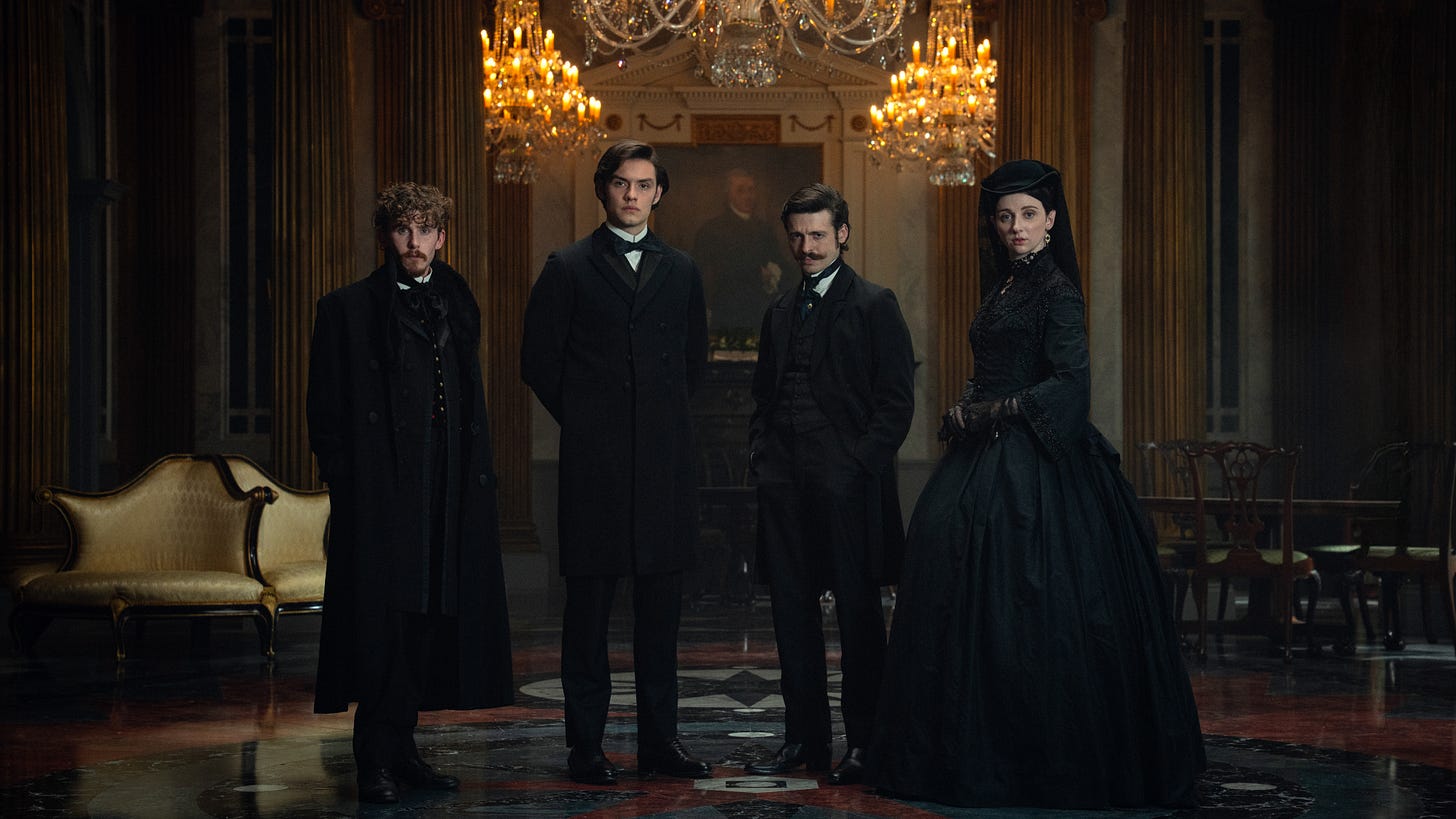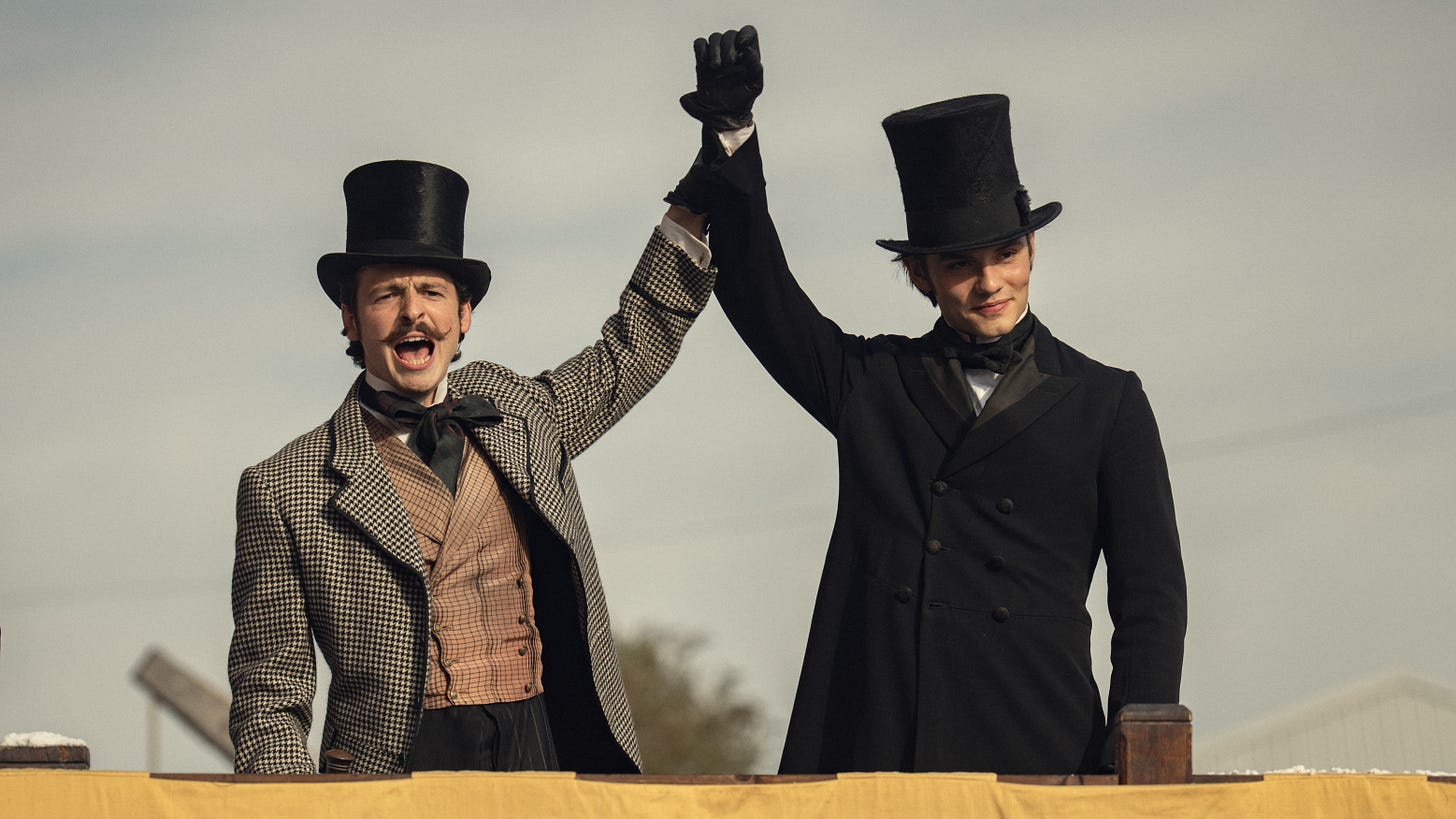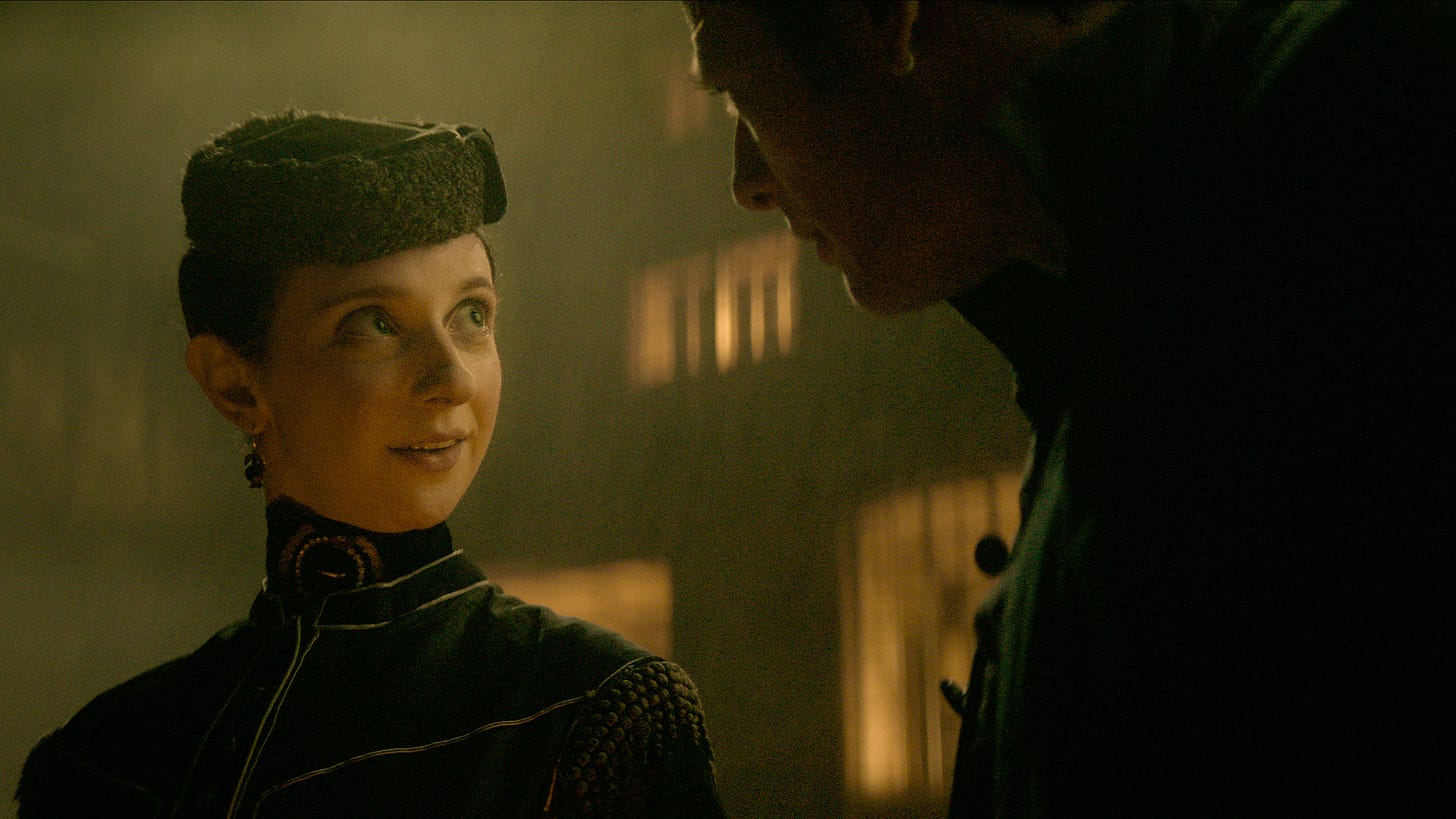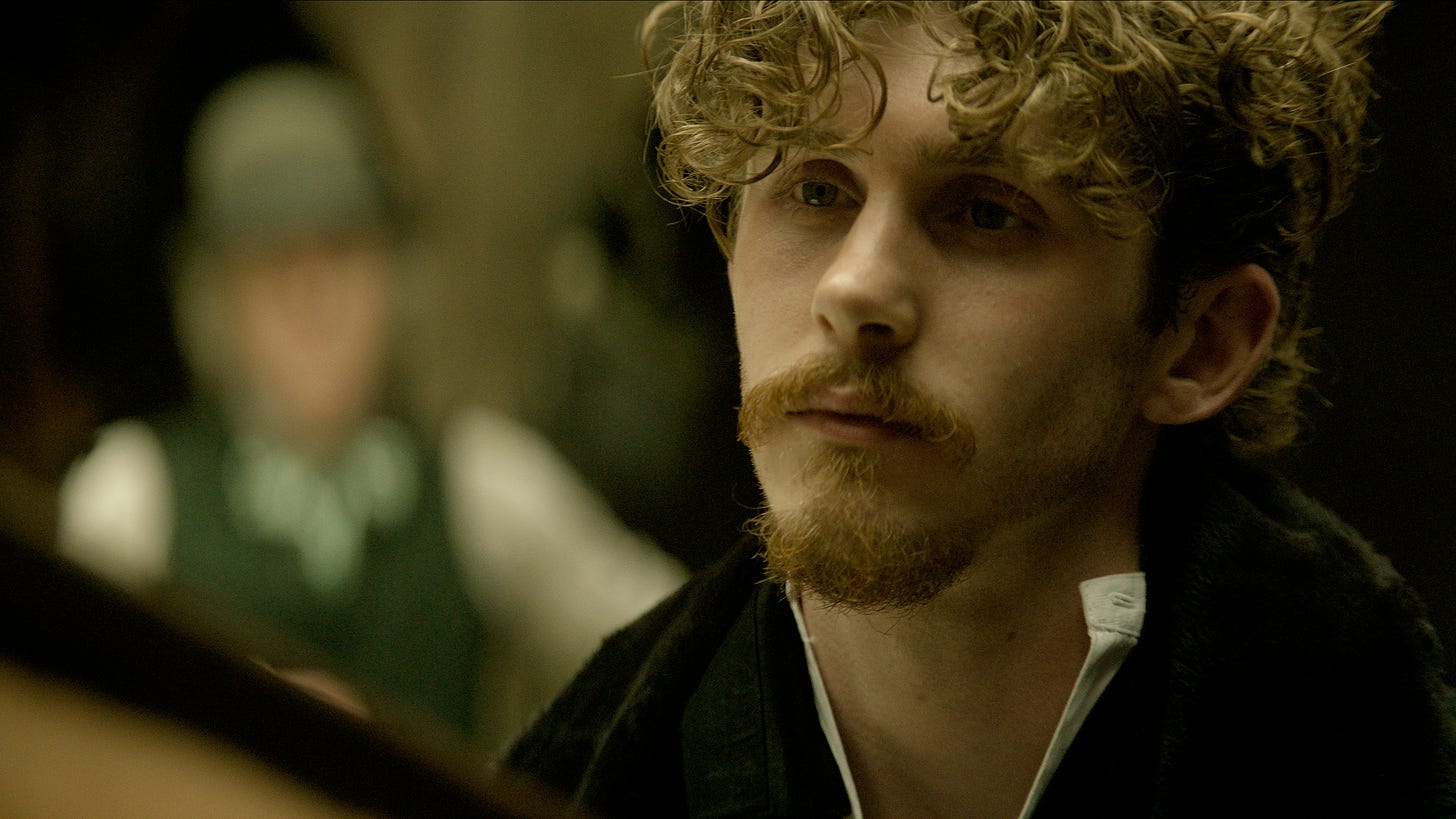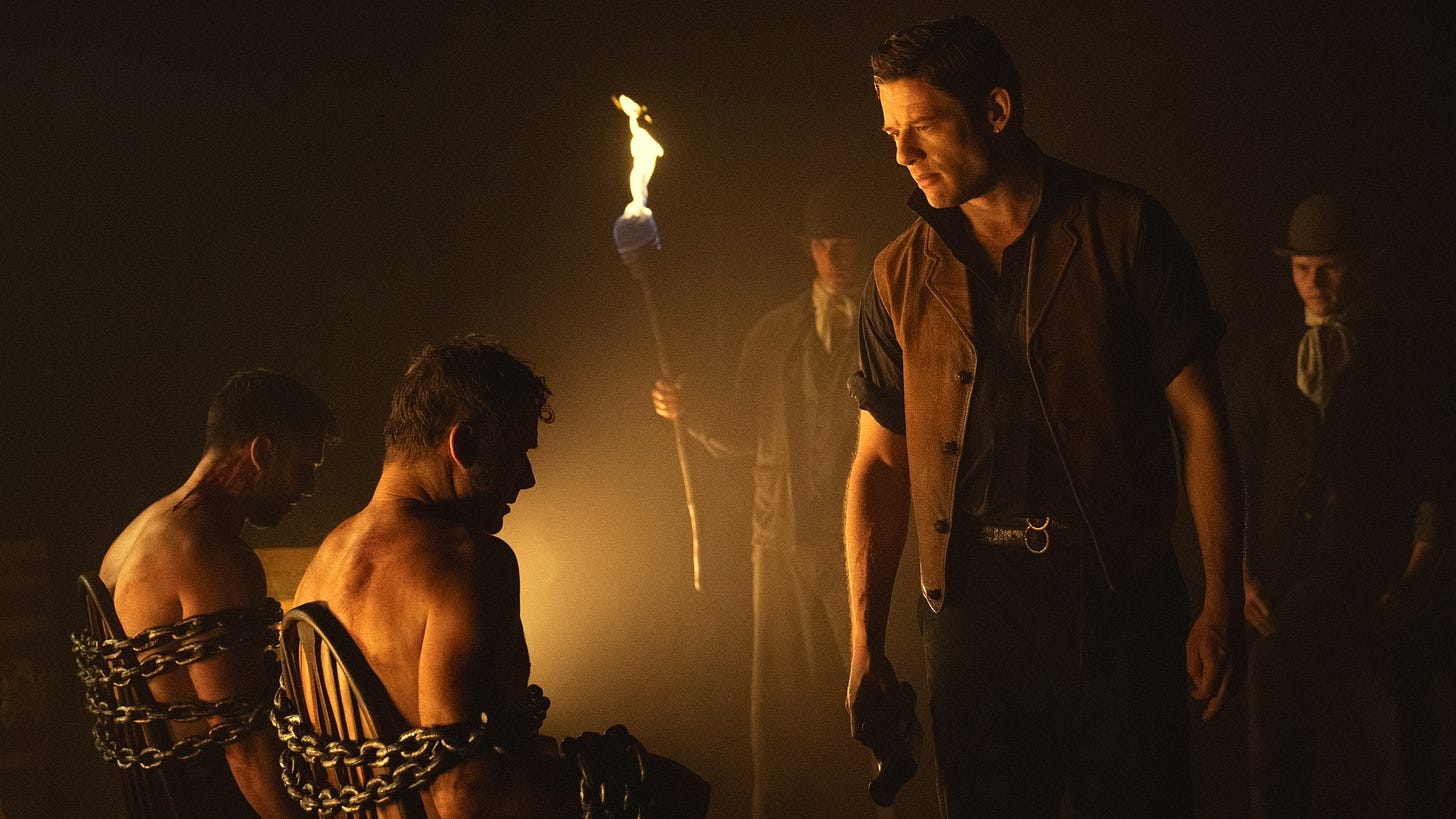Review: 'House of Guinness'
A historical drama about the Guinness brewing empire from the creator of Peaky Blinders? Sign me up, please!
I don’t always drink beer, but when I do, I prefer Guinness. The famous line from the Dos Equis advertising campaign, featuring actor Jonathan Goldsmith as “The Most Interesting Man in the World,” could easily be adapted for me and my love for the dark, Irish beer. The phrase has become a popular meme, its details often switched out to fit any situation with a touch of humor.
The Guinness name is an iconic touchstone in Irish culture, and the history of its brewery is deeply embedded in 19th-century Ireland. Set in the 1860s, House of Guinness drops us into the heart of the religious, class, and cultural struggle between militant Irish Fenians and the Anglo-Irish establishment — a conflict that would steer the nation for more than a century to come, pitting Protestants and Catholics against each other well into the late 20th century.
At the center of this storm stands the Guinness brewery in Dublin, a symbol of immense Protestant power. With the passing of its patriarch, Sir Benjamin Guinness, this empire is left to his four children: Arthur, Edward, Anne, and Benjamin. But this is no simple inheritance; they are each imprisoned by the strict, unforgiving terms of their father’s will.
Each of the Guinness heirs has their vices and virtues — depending on who you ask. The eldest, Arthur Guinness (Anthony Boyle), couldn’t care less about the family business. A staunch Conservative, his ambition lies in politics, with his sights set on a seat in Parliament representing Dublin. However, as a gay man in 19th-century Ireland, such a public life is a dangerous pursuit that could ruin his family.
Edward (Louis Partridge) is the idealist and workhorse of the family, perfectly suited to run the family business and expand it into a global empire. With an ambition to mend Ireland’s fractured society, he has already spent five years running the Dublin brewery for his father. However, his dedication soon turns into an obsession, leading him to forsake the expectations of a gentleman of his status.
The late Guinness patriarch’s only daughter, Anne Plunket (Emily Fairn), is presented as the family’s soul and conscience. Unhappily married to the Protestant clergyman William Plunket — a man destined to become the Archbishop of Dublin — her primary goal is to keep her unruly siblings in line and protect the family name. But beneath this pious exterior, she harbours secrets and dreams of freedom and self-determination.
The youngest of the four siblings is Benjamin (Fionn O’Shea), the black sheep of the family. He has never shown any interest in the Guinness brewery. Instead, when we meet him, Benjamin is deep in addiction and in debt to Fenian criminals in the Dublin underworld, making him a volatile and unpredictable force within the family.
As if sensing his children’s individual ambitions—or lack thereof—the late Sir Benjamin Guinness’s will is designed to keep them firmly in line. Its draconian rules are meant to keep the brewery intact, stipulating that Arthur and Edward must run it as a pair. Neither Anne, as a married woman, nor Benjamin, the addict, are to see a penny of the inheritance. Should Arthur prioritize his political ambitions over the brewery, he would lose everything. And so, with a single stroke of a pen, a father ensures the misery of all four of his children, even from beyond the grave.
The eight episodes of House of Guinness follow the four heirs as they navigate the treacherous landscape of 19th-century Ireland. While they have allies — such as the family’s foreman and enforcer, Sean Rafferty (James Norton), their major-domo, John Potter (Michael McElhatton), and the shrewd marketeer, Byron Hedges (Jack Gleeson — yes, that’s Joffrey from Game of Thrones) — they also face a host of adversaries. These include Ellen (Niamh McCormack) and Patrick (Seamus O’Hara) Cochrane from the Fenian Brotherhood, as well as various politicians, nobles, criminals, and religious institutions that object to more alcohol flooding the streets of Dublin.
The first thing that struck me about House of Guinness was its one-two punch of style and substance. 19th-century Dublin is fantastically brought to life around the massive brewery, and as the story evolves to the rest of Ireland and even New York, it’s clear the showrunners are punching far above their budget’s weight class. This is a testament to the mastery of the set design, costuming, and post-production departments, which transformed shooting locations in Manchester and Liverpool into an immersive and believable version of Ireland’s past, even if it isn’t 100% historically accurate.
Indeed, the show doesn’t purport to be a documentary. The opening of each episode makes this clear with the statement that this “fiction” is based on true stories. This declaration gives the writers immense freedom to invent — to create a “what if” scenario for the Guinness family and its business empire. This narrative freedom also extends directly to the show’s style, where House of Guinness embraces purposeful and deliberate anachronism.
While the setting looks period-correct, the storytelling is thoroughly modern. The soundtrack shifts between traditional Irish folk — often remixed and updated — and surprising needle-drops of contemporary music. This is complemented by a liberal use of stylish, bold graphics whenever a concept needs explaining or a piece of dialogue requires translation, giving the series a confident, edgy flair.
All this is supported by excellent writing from series creator Steven Knight, whose credits most famously include Peaky Blinders. He is joined by directors Tom Shankland (The Children, Ripper Street) and Mounia Akl (Costa Brava, Lebanon), who share directing duties across the eight episodes. Together, they draw powerful performances from an excellent cast, telling a story that is gripping, tense, and stylish. The four main characters, despite their flaws and varied screentime, are compelling and easy to root for.
My love for the famous Irish beer aside—of which I had multiple pints while watching this show—I realize that House of Guinness might seem niche, especially if you think it’s a show about the particulars of brewing. But this story is all about its characters, not the process of mixing barley, hops, and yeast. And while you might learn a thing or two about making beer—if you are so inclined—that is not its focus.
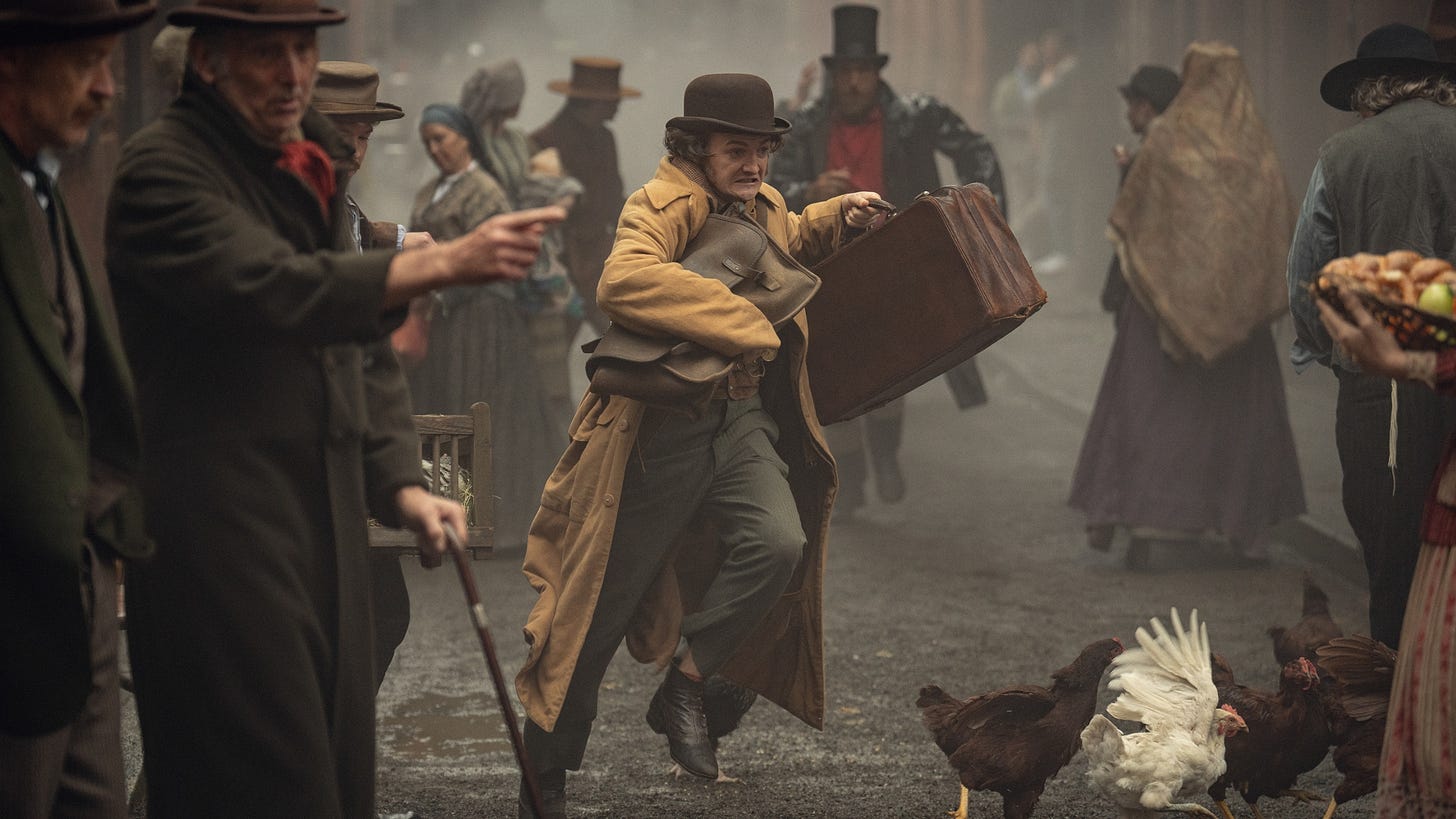
Ultimately, House of Guinness stands out as one of the better historical dramas of the year. It's unclear if this is a limited series or the start of something more, but this first taste certainly leaves you wanting more: more historical intrigue, more sibling rivalry, more witty jabs, more Fenian shenanigans, and, of course, more Irish beer.
And with that, I leave you with my warmest recommendation for this series, and a final quote that perfectly captures its spirit:
"So, infidelity. Sodomy. Lost love and random acts of violence. A more typical Dublin family is hard to find."
-Byron Hedges (Jack Gleeson)
Sláinte!


